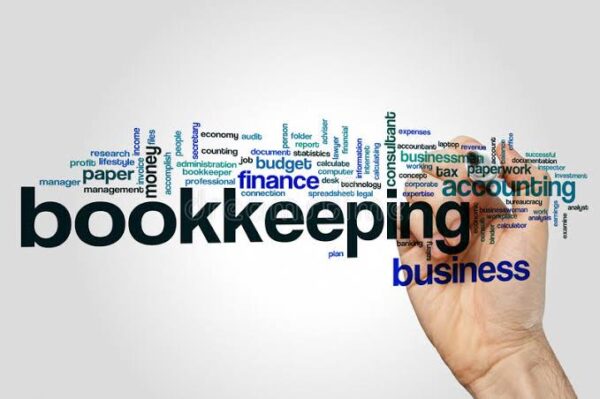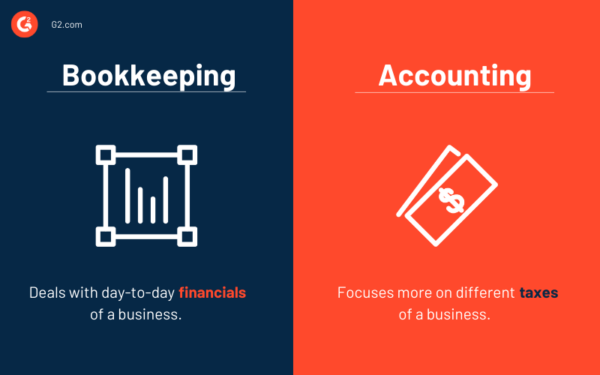How To Work from Home As A Bookkeeper (Step-by-step Guide)

If you are ready to kickstart your journey as a freelance bookkeeper, there are several ways you can go about it. First, working as a bookkeeper is a great way to make good money while gaining the flexibility and freedom you desire. Furthermore, getting started with a bookkeeping job is simple.
Aside from a computer, an internet connection, and bookkeeping software, there isn't much setup or equipment required. While learning the ins and outs of bookkeeping takes time, almost anyone with a knack for numbers and data entry can know with practice.
You don't need expensive equipment to start, and you certainly don't have to go through complex processes. All you need is a stable internet connection, bookkeeping software, and a computer – it's that easy!
But if you want to be successful at it, there are certain processes you need to follow. This article highlights the best ways to become a successful work-from-home bookkeeper.
How Lucrative are Work-from-home Bookkeeping Jobs?

Bookkeeping is one of the highest-paying jobs you can do remotely. It is also an interesting career for anyone interested in finance but does not want to meet the requirements to become an accountant. However, if you are looking for a job that lets you use your knowledge of finance or computer skills, working as a bookkeeper could be a profitable and rewarding option.
Bookkeeping is one of the best stay-at-home mom jobs you should consider since it doesn't require much physical effort. Because the start-up costs are so low, it's an excellent opportunity for many people. Furthermore, there are different ways to work from home as a bookkeeper and you do not need prior experience or a bookkeeping certification/degree.
What Are the Pros vs Cons of Becoming a Work-from-home Bookkeeper?

As with most jobs, there are advantages and disadvantages, and it is ultimately up to you to decide what you are comfortable doing.
Pros
- You can set your own rates.
- You can take on as many clients as you want; it's a flexible career path in which you set your own hours and work schedule.
- You can do this as a side hustle to complement your current job or your children's schedules.
- A high school diploma is required, but no other degrees are needed. Job training is available!
Cons
- You must find your own clients and pitch to them.
- At first, your income may not be consistent from month to month.
- You must be knowledgeable about different accounting software and consistent in your ability to prepare financial reports.
- Certified bookkeepers earn more per hour, so you may want to go the extra mile and pursue certification.
Related: 30 Best Side Hustles To Start With $100
How To Work from Home As A Bookkeeper
Step 1. Register as Self-employed

Registering as self-employed with the HMRC is a simple process that can be completed online. However, starting as a sole trader may be best if you've never registered for VAT.
This will allow you to keep track of your income and expenses for tax purposes, making organizing your business finances easy. If you intend on taking on employees at some point in the future, you will need to register with HMRC as a limited company.
Registering as self-employed allows you to access certain benefits absent when working under an organization.
Step 2. Invest in Your Work Tools
If you want to learn to be a bookkeeper, you need to be willing to invest money in this career. You're basically training to become a virtual bookkeeper, which means you'll work from home, most likely for businesses as a third-party service provider.
It makes sense that you should buy a good computer and a good Internet connection. You'll use these two tools most for work, so they must be good. To reach customers and coworkers, you should also spend money on a landline or mobile phone service.
You can use your personal cell phone and landline while setting up your business, but at some point, you'll need to separate your business communications from your personal ones.
Step 3: Learn How to Use Accounting Software
You need to know the basics of bookkeeping and how to do it, but you also need to understand how to use accounting software. You can learn the basics from online tutorials or working with a professional bookkeeper.
If you know how to use accounting software, you can be even more helpful to your clients. Software tools make it easier to keep track of your books so that you can do your job quickly.
Accounting software for business like QuickBooks also helps keep the costs of starting a business to a minimum. When choosing an online accounting program, you should consider how it will help you and your clients manage their money. Don't forget that you'll also use it to track your money.
Software and programs are usually not free, so it's up to you to choose one worth the money. Here are some things to think about when picking an accounting program or software:
- Cost of software
- Types of bookkeeping tools you'll need
- Collaboration options
- Usability
- Storage
- Mobile options
You don't need the most advanced accounting software when you first start. Instead, you need cheap software with everything you need to manage your money well.
Step 4. Launch Your Bookkeeping Business
After you've learned how to become a bookkeeper and gotten business skills, it's time to start your own bookkeeping business. Or, you can work as a bookkeeper on your own. Whether you decide to open a bookkeeping business or work as a freelance bookkeeper, here are some steps you need to take:
- Acquire a tax identification number
- Licenses and business permits may need to be applied for.
- Select a structure for your business (sole proprietorship, LLC, etc.)
After making your bookkeeping business official, start marketing your business. You can do this in the following ways:
Create a Website: Having your website adds to your credibility. It makes it easier for people to find you and learn about your services. You can host your software in one of these best webhosting platforms to ensure you have a good, responsive and user-friendly website. Eventually, you can also add customer reviews to your website.
Networking: Go to small business groups and events for networking to meet people you might work with or do business with. Look for potential clients on job sites specializing in bookkeeping jobs you can do from home. Websites called "freelance marketplaces" allow you to look for both short-term and long-term jobs.
One thing you can do is focus on a certain niche that you can grow naturally. For example, you can work as a bookkeeper for doctors or new businesses.
Word of Mouth: Tell your family and friends about your business and take advantage of your connections. Ask people to recommend you so you can get clients and build your network.
Create a LinkedIn Profile — Social selling is a good way to market your services, and you can start by connecting with people on LinkedIn. Make sure to keep your profile up to date with useful information, just like you would with your website.
Step 5. Get Clear on Your Pricing and Payment Terms
According to the US Bureau of Labor Statistics, the average annual bookkeeper salary is around $40,000 ($19 per hour). Full-time bookkeepers are paid at this rate.
You can earn more as a service provider or freelancer than the average full-time bookkeeper. The key to commanding a higher rate is providing your clients with the required value.
Make sure you clearly understand how much time and effort it will take to complete your services. After this, place a price tag on your service. Doing this will give you a sense of security and control. It also enables your clients to gain confidence in you.
In addition, you should also be clear on your payment terms—what is expected before the project can begin, what happens after it's completed, and when clients can expect to receive their final product.
How to Set Up Your Bookkeeping Website

Creating a blog for your services may not be necessary, but it is important. A website gives you an online presence and enables you to reach potential clients worldwide. The following are what to do when creating a website:
Create a website that is easy to navigate, responsive to visitors and understandable. Update the blog regularly with content related to bookkeepingInclude a contact form, your pricing, credentials, testimonials, portfolio, and the list of services you offer on the site so potential clients can find it easily.
Start using social media to promote your bookkeeping service. Social media is a great way to promote your bookkeeping service, and with the right social media management tools, you are well on your way to building your brand. It's also an excellent way to connect with your target audience and potential clients.
How do I set up social media accounts for my bookkeeping business
Set up social media accounts for your business
Create engaging content that includes a redirection link to your website. Post regularly so people will keep coming back to the page. Get testimonials and reviews.
What a client wants is to be assured of the services you offer. A testimonial or review from previous clients settles this anxiety they have.
How Do I Get Testimonials from Clients for my bookkeeping business?
Get testimonials from clients and reviews from other bookkeepers. Also, get reviews from the media and the internet (websites like Yelp). Getting positive feedback in as many places as possible is essential, especially if you're a new business with a small client base and need to build your reputation quickly.
Step 6. Create a workflow: Deliverables, Proposals, Processes, and Payments
Losing your sense of direction and stability as a freelance worker is very easy. To avoid this situation, it's best to create a workflow to gain insight into the business pipeline.
Here's how to go about it:
Create a workflow – deliverables, proposals, processes, and payments. Establish your office space. Have clear goals and objectives for your business. Join professional associations or organizations
You can join professional organizations and groups to connect with other bookkeepers, stay up-to-date on industry trends, and find job opportunities.
Professional associations and organizations are also great places to find mentors who can guide you through your career as a bookkeeper.
Some good examples of professional associations include the International Association of Bookkeepers (IAB), the American Institute of Certified Public Accountants (AICPA), the National Association of Accountants (NAA), and the National Society for Certified Public Accountants (CPA).
Step 7. Get a Partner or Network of Bookkeepers.
Working with a partner or network of bookkeepers can be a great way to expand your business. You can help each other with clients, share resources such as software or cloud storage, and collaborate on marketing strategies.
One partner may specialize in payroll, while another may focus on taxes.
Find Focus – Set Processes, Hours, and Boundaries
The next step is setting working hours, boundaries, and work processes. Again, it's essential to work out what your working day will look like to stay consistent. For example, if you are working from home, you'll need to ensure that your office space has the proper lighting and that there are no distractions.
- Make Provisions for Finances
- You'll need to ensure that you have enough money to cover all of your business expenses, including:
- Rent or mortgage payment(s)
- Utilities (gas, electric, and water)
- Internet service provider fees (if applicable to your business model)
- Office supplies (such as pens, paper clips, and file folders).
Step 8: Invest in Yourself

Investing in work tools is the first step to becoming a bookkeeper from home. Now that we're back where we started, the last step you should always take is to invest in yourself.
This means that you should regularly train to improve your skills. You must also keep up with the latest industry standards to give your clients the best service possible.
Grow your desire to learn new things because there's always something new to find and understand. In addition, the accounting field is always changing, and if you want to stay in business, you must go with the flow.
Step 9. Keep Up With Training and Trends

Professional development is a good idea regardless of industry. The good news is that it is widely accessible! Conferences, events, and professional groups allow you to meet other people in your industry and help you connect with clients, stay on top of changes you need to be aware of, and stay competitive.
Also, keep an eye out for bookkeeping, finance, and accounting-related webinars, online courses, books, and training sessions. There are a lot of online course platforms for learning and teaching to training and developing yourself.
Consider Getting Bookkeeping Certifications
Getting certified can be helpful for both full-time and part-time workers. You can get the Certified Bookkeeper title from the American Institute of Professional Bookkeepers and the National Association of Certified Public Bookkeepers.
To get these certifications, you must have worked as a bookkeeper full-time for at least two years or part-time for the same time. Then you must pass a test and agree to follow a set of rules. You can also get a license as a Certified Public Bookkeeper by taking the Uniform Bookkeeper Certification Exam online.
Certification isn't necessary to be a successful bookkeeper, but it can help you get higher-paying clients. In addition, certified bookkeepers are guaranteed skilled and experienced, so some employers may only hire certified people.
What is Bookkeeping
Bookkeeping is the process of recording, monitoring, and analyzing financial transactions – It is an important part of any business. With bookkeeping, you can have a clear picture of your financial situation. In addition, it helps you to prepare your taxes and keep your finances on track.
Most entrepreneurs and business owners are experts in their fields: carpentry, dentistry, carpet cleaning, and you name it. However, most of them have no idea how to keep track of their finances. Here comes the bookkeeper.
The bookkeeper is the person business owners rely on for accurate financial data. Business owners want to be able to focus on their strengths while delegating their weaknesses. Bookkeeping is an excellent example of a task that savvy business owners delegate to others.
Accountant vs Bookkeeper

You may wonder what responsibilities and experience are required when you hear the term bookkeeping. Unlike an accountant or CPA (certified public accountant), who must have a bachelor's degree and a license, bookkeepers are classified as accountants.
On the other hand, bookkeepers are more concerned with the day-to-day operations of tracking income and expenses and balancing the books. While experience is helpful, you do not need a college degree or a CPA license to work as a bookkeeper.
As a result, while the bookkeeping role requires close attention to detail and a high level of accuracy, the responsibility is lower than that of an accountant. In addition, a college degree or a CPA license is not required. As a result, while bookkeeping requires close attention to detail and a high level of accuracy, the role is less responsible than that of an accountant.
On the other hand, accountants are typically in charge of developing a company's overall budget and financial direction; they oversee tax information and establish the chart of accounts following standard accounting practices. In addition, accountants examine and audit financial data, generate reports, and make strategic recommendations based on data and tax laws.
Why Do Companies Hire Remote Bookkeepers?
You may be wondering why a company would hire an inexperienced remote bookkeeper. Of course, every business requires a bookkeeper at some point — but not every business needs a full-time bookkeeper.
This is particularly true for small businesses such as freelancers and mom-and-pop shops. Many of these businesses have realized that hiring someone online part-time makes more sense than going with a more traditional firm with higher overhead costs that are passed on in the form of higher rates.
In other words, it's a win-win situation: remote bookkeepers frequently earn more than they would work for a traditional firm or agency while still offering their services at a lower rate than clients would find elsewhere.
Furthermore, not every business has the same requirements. For example, traditional bookkeeping firms can be rigid and inflexible.
https://paypant.com/how-to-work-from-home-as-a-bookkeeper/
Comments
Post a Comment